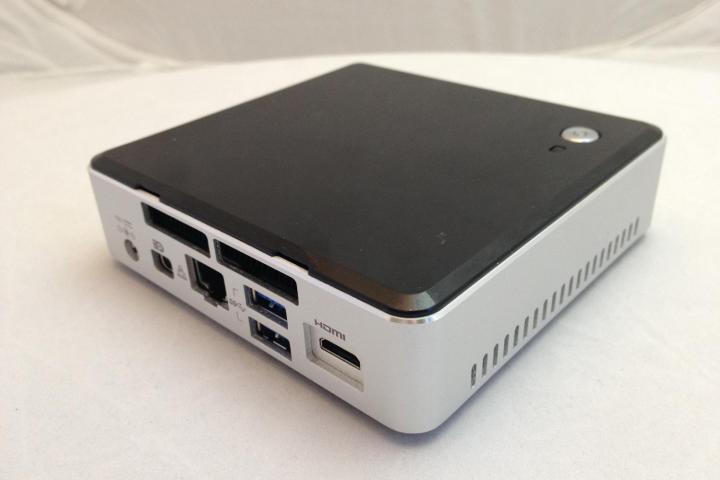
Good thing standout is Intel’s middle name, as the chip maker extraordinaire manages to steal the spotlight away from HP, Gigabyte or Zotac in pint-sized desktop décor as well.
Their latest NUC (short for Next Unit of Computing) is the family’s first Core i7-powered member, and is “coming in Q2 2015,” according to a teaser that popped out of nowhere on the Santa Clara-based outfit’s website.
You may recall Intel pulled a similarly vague, low-key publicity stunt back in December, when a new generation of NUCs was “unintentionally” disclosed. In the meantime, the fifth-gen Broadwell-packing product roster has been confirmed as including a Core i3 model, and two i5s, one slim-case edition and a larger model with 2.5-inch drive support.
The just-outed Core i7 configuration is itself part of the big, happy, ultra-fast Broadwell family, and rumor has it an i7-5557U processor will be found inside.
Coupled with Iris 6100 graphics, this processor is capable of flying at clock speeds up to 3.4 GHz, so it’s substantially zippier than what you usually find in tiny computers. But it’s not exactly a desktop-grade or gaming-friendly CPU.
It might be enough to make you abandon a multipurpose laptop, as long as you cough up for storage and memory, plus a decent Full HD+ monitor. If the i7 Broadwell NUC is anything like the larger i5 (and it should be), up to 16GB RAM will be supported, alongside solid state storage.
Four USB 3.0 ports are squeezed in most NUCs, as well as mini-HDMI and mini-DP connectors, 802.11ac Wi-Fi and Bluetooth 4.0 capabilities, and 7.1 surround audio. If Intel finds a way to slap the upgraded NUC with a reasonable price it’ll have a stunner on its hands.
Editors' Recommendations
- Intel CPU gaming crashes are causing an uproar
- Apple’s M3 Max appears to keep up with Intel’s top desktop CPU
- The iPhone 15’s chip challenges Intel’s fastest desktop CPU — but there’s a catch
- After 15 years, Intel may be killing the Core i5 and Core i7
- AMD Ryzen 9 7950X3D vs. Intel Core i9-13900K: only one choice for PC gamers


